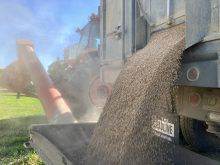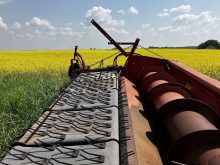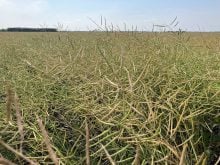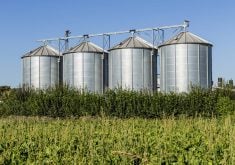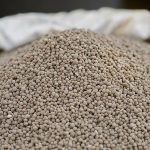The November canola contract on the Intercontinental Exchange has traded mostly between $600 and $660 per tonne for the past month.
However, forecasted weather conditions for late July on the Prairies may give the oilseed a chance to break through the upper level of its trading range.
November canola reached $655.20/tonne on July 18, before closing the day at $649.70, for a one-day gain of $18.20. While most comparable oils were up during the day and the Canadian dollar was slightly weaker, consensus in the trade was that the coming week’s weather forecast gave support to canola prices.
Read Also

Flour production slumps in the U.S., increases in Canada
U.S. flour production in 2025 was the lowest in 14 years.
Temperatures across the Prairies were expected to be at least 30 C in most growing areas during the final full week of July and there was little precipitation in sight.
Many canola crops are in the flowering stage and there were fears they would be too heat-stressed to fully develop pods. A large net short position for canola could eventually fuel price increases further.
Canola’s recent rise is even more surprising because the Chicago soy complex didn’t give it any help during the week.
November soybeans have lost US$1.90 per bushel since May 28, falling to $10.3175 on July 18. A maelstrom of increased soybean area and decent growing conditions in the U.S., greater production numbers in South America and lack of export demand for new crop U.S. soybeans have combined to take soybean prices down.
Flooding in the U.S. Midwest earlier this month couldn’t stop the bleeding. The November contract, as well as August soymeal, were well below their respective 20-, 50- and 100-day averages, while November soyoil was slightly above its averages.
A crop tour by MarketsFarm analyst Bruce Burnett earlier this month led him to project 20.6 million tonnes of canola produced in the 2024-25 marketing year, tied for the second-largest harvest in 10 years. However, long-term heat and short-term weather events could put a dent in that number.
If Chicago soybeans and soymeal stop testing new lows, the reins could be taken off canola for the rest of the summer.






